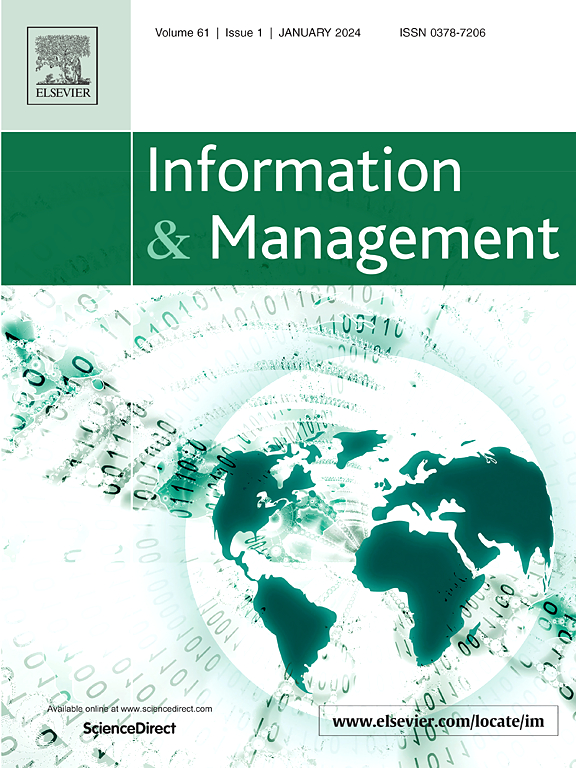人工智能(AI)对运营绩效的影响:动态能力的作用
IF 8.2
2区 管理学
Q1 COMPUTER SCIENCE, INFORMATION SYSTEMS
引用次数: 0
摘要
本研究探讨了动态能力(DCs)在中国电信行业采用人工智能(AI)系统中的作用及其对企业运营绩效的影响。利用数据中心理论和技术-组织-环境(TOE)框架,本研究探讨了TOE因素如何影响人工智能系统采用的数据中心,进而影响运营绩效。它还考察了DCs在TOE因素和运营绩效之间的关系中的中介作用。尽管有很多关于人工智能系统采用的研究,但DCs的潜在机制还需要进一步研究。调查数据来自中国电信企业的205名高管。对数据的分析表明,TOE因素对人工智能系统采用的DCs产生积极影响,进而对运营绩效产生积极影响。此外,竞争压力正向调节技术因素(即技术兼容性和预期效益)与经营绩效之间的关系。这些发现为人工智能系统的采用提供了管理和理论见解。本文章由计算机程序翻译,如有差异,请以英文原文为准。
Impact of artificial intelligence (AI) on operational performance: The role of dynamic capabilities
This study examines the role of dynamic capabilities (DCs) in the adoption of artificial intelligence (AI) systems in China’s telecommunications industry and their impact on firms’ operational performance. Drawing on DCs theory and the technology–organization–environment (TOE) framework, this study investigates how TOE factors influence DCs for AI system adoption, which subsequently impacts operational performance. It also examines the mediating role of DCs in the relationship between TOE factors and operational performance. Despite numerous studies on AI system adoption, the underlying mechanism of DCs requires further investigation. Survey data were collected from 205 senior executives of telecommunications firms in China. Analysis of the data reveals that TOE factors positively influence DCs for AI system adoption, which in turn have a positive effect on operational performance. Additionally, competitive pressure positively moderates the relationship between technological factors (i.e., technology compatibility and expected benefits) and operational performance. These findings provide managerial and theoretical insights into AI system adoption.
求助全文
通过发布文献求助,成功后即可免费获取论文全文。
去求助
来源期刊

Information & Management
工程技术-计算机:信息系统
CiteScore
17.90
自引率
6.10%
发文量
123
审稿时长
1 months
期刊介绍:
Information & Management is a publication that caters to researchers in the field of information systems as well as managers, professionals, administrators, and senior executives involved in designing, implementing, and managing Information Systems Applications.
 求助内容:
求助内容: 应助结果提醒方式:
应助结果提醒方式:


